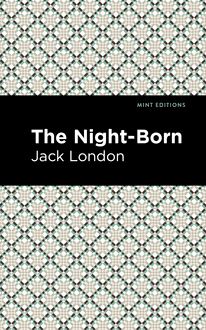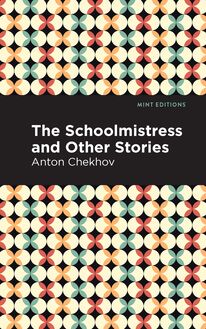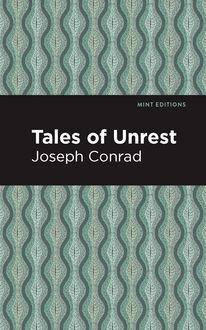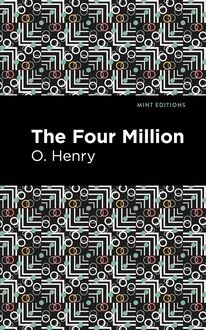-
 Univers
Univers
-
 Ebooks
Ebooks
-
 Livres audio
Livres audio
-
 Presse
Presse
-
 Podcasts
Podcasts
-
 BD
BD
-
 Documents
Documents
-
- Cours
- Révisions
- Ressources pédagogiques
- Sciences de l’éducation
- Manuels scolaires
- Langues
- Travaux de classe
- Annales de BEP
- Etudes supérieures
- Maternelle et primaire
- Fiches de lecture
- Orientation scolaire
- Méthodologie
- Corrigés de devoir
- Annales d’examens et concours
- Annales du bac
- Annales du brevet
- Rapports de stage
La lecture à portée de main
Vous pourrez modifier la taille du texte de cet ouvrage
Découvre YouScribe en t'inscrivant gratuitement
Je m'inscrisDécouvre YouScribe en t'inscrivant gratuitement
Je m'inscrisEn savoir plus
Vous pourrez modifier la taille du texte de cet ouvrage
En savoir plus

Description
With stories about love, culture, adventure, religious differences and shocking endings, Exemplary Stories features dynamic protagonists and challenges tradition.
Featuring twelve novellas, Exemplary Stories features a diverse array of protagonists, accompanied by captivating prose. Among this collection of short fiction is The Little Gypsy Girl, a story about a wise, talented and beautiful young woman who requires her noble suitor to leave his old life behind and become a gypsy in order to win her hand in marriage. Using irony to expose the social contrasts in a rich city, Rinconte and Cortadillo features two thieves that travel to a new town with intentions to join a guild of criminals. The Liberal Lover depicts a couple who take each other for granted. During the downfall of their relationship, a tragic event separates the two, causing them to reconsider the way they treat each other. Inviting discussion on the pivotal role mental health plays in daily life, The Lawyer of Glass depicts a handsome young man named Thomas, who is well-known for his intelligence. Enamored by Thomas, a local woman brews a love potion and gets Thomas to drink it, unintentionally poisoning him. Though he is able to physically recover, Thomas is convinced that he is made of glass, changing him in a way the woman never intended to.
Exemplary Stories features twelve of Miquel de Cervantes’ exceptional works of short fiction, each crafted with enthralling prose and thought-provoking plot that cater to curiosity and a sense of adventure. With an aesthetically pleasing approach, Cervantes crafted this collection to address social and moral issues. Since its publication in 1613, Exemplary Stories has inspired dramatic adaptations, and have inspired many writers. With shocking endings, complex conflicts, and adventurous settings, Exemplary Stories by Miguel de Cervantes continues to surprise and delight readers even four-hundred years later.
This edition of Exemplary Stories by Miguel de Cervantes features twelve works of short fiction and has been redesigned with the modern reader in mind. With an eye-catching cover and an easy-to-read font, the excellence and awe of Exemplary Stories reaches the contemporary audience with ease.
Sujets
Informations
| Publié par | Mint Editions |
| Date de parution | 08 décembre 2020 |
| Nombre de lectures | 0 |
| EAN13 | 9781513274058 |
| Langue | English |
| Poids de l'ouvrage | 4 Mo |
Informations légales : prix de location à la page 0,0500€. Cette information est donnée uniquement à titre indicatif conformément à la législation en vigueur.
Extrait
Exemplary Stories
Miguel de Cervantes
Exemplary Stories was first published in 1613.
This edition published by Mint Editions 2021.
ISBN 9781513269054 | E-ISBN 9781513274058
Published by Mint Editions®
minteditionbooks.com
Publishing Director: Jennifer Newens
Design & Production: Rachel Lopez Metzger
Translation: Walter Kelly
Typesetting: Westchester Publishing Services
C ONTENTS T HE L ADY C ORNELIA R INCONETE AND C ORTADILLO : O R , P ETER OF THE C ORNER AND THE L ITTLE C UTTER T HE L ICENTIATE V IDRIERA ; OR , D OCTOR G LASS -C ASE T HE D ECEITFUL M ARRIAGE D IALOGUE BETWEEN S CIPIO AND B ERGANZA , D OGS OF THE H OSPITAL OF THE R ESURRECTION IN THE C ITY OF V ALLADOLID , C OMMONLY C ALLED THE D OGS OF M AHUDES T HE L ITTLE G IPSY G IRL T HE G ENEROUS L OVER T HE S PANISH -E NGLISH L ADY T HE F ORCE OF B LOOD T HE J EALOUS E STRAMADURAN T HE I LLUSTRIOUS S CULLERY -M AID T HE T WO D AMSELS
T HE L ADY C ORNELIA
Don Antonio de Isunza and Don Juan de Gamboa, gentlemen of high birth and excellent sense, both of the same age, and very intimate friends, being students together at Salamanca, determined to abandon their studies and proceed to Flanders. To this resolution they were incited by the fervour of youth, their desire to see the world, and their conviction that the profession of arms, so becoming to all, is more particularly suitable to men of illustrious race.
But they did not reach Flanders until peace was restored, or at least on the point of being concluded; and at Antwerp they received letters from their parents, wherein the latter expressed the great displeasure caused them by their sons having left their studies without informing them of their intention, which if they had done, the proper measures might have been taken for their making the journey in a manner befitting their birth and station.
Unwilling to give further dissatisfaction to their parents, the young men resolved to return to Spain, the rather as there was now nothing to be done in Flanders. But before doing so they determined to visit all the most renowned cities of Italy; and having seen the greater part of them, they were so much attracted by the noble university of Bologna, that they resolved to remain there and complete the studies abandoned at Salamanca.
They imparted their intentions to their parents, who testified their entire approbation by the magnificence with which they provided their sons with every thing proper to their rank, to the end that, in their manner of living, they might show who they were, and of what house they were born. From the first day, therefore, that the young men visited the schools, all perceived them to be gallant, sensible, and well-bred gentlemen.
Don Antonio was at this time in his twenty-fourth year, and Don Juan had not passed his twenty-sixth. This fair period of life they adorned by various good qualities; they were handsome, brave, of good address, and well versed in music and poetry; in a word, they were endowed with such advantages as caused them to be much sought and greatly beloved by all who knew them. They soon had numerous friends, not only among the many Spaniards belonging to the university, * but also among people of the city, and of other nations, to all of whom they proved themselves courteous, liberal, and wholly free from that arrogance which is said to be too often exhibited by Spaniards.
Being young, and of joyous temperament, Don Juan and Don Antonio did not fail to give their attention to the beauties of the city. Many there were indeed in Bologna, both married and unmarried, remarkable as well for their virtues as their charms; but among them all there was none who surpassed the Signora Cornelia Bentivoglia, of that old and illustrious family of the Bentivogli, who were at one time lords of Bologna.
Cornelia was beautiful to a marvel; she had been left under the guardianship of her brother Lorenzo Bentivoglio, a brave and honourable gentleman. They were orphans, but inheritors of considerable wealth—and wealth is a great alleviation of the evils of the orphan state. Cornelia lived in complete seclusion, and her brother guarded her with unwearied solicitude. The lady neither showed herself on any occasion, nor would her brother consent that any one should see her; but this very fact inspired Don Juan and Don Antonio with the most lively desire to behold her face, were it only at church. Yet all the pains they took for that purpose proved vain, and the wishes they had felt on the subject gradually diminished, as the attempt appeared more and more hopeless. Thus, devoted to their studies, and varying these with such amusements as are permitted to their age, the young men passed a life as cheerful as it was honourable, rarely going out at night, but when they did so, it was always together and well armed.
One evening, however, when Don Juan was preparing to go out, Don Antonio expressed his desire to remain at home for a short time, to repeat certain orisons: but he requested Don Juan to go without him, and promised to follow him.
“Why should I go out to wait for you?” said Don Juan. “I will stay; if you do not go out at all to-night, it will be of very little consequence.” “By no means shall you stay,” returned Don Antonio: “go and take the air; I will be with you almost immediately, if you take the usual way.”
“Well, do as you please,” said Don Juan: “if you come you will find me on our usual beat.” With these words Don Juan left the house.
The night was dark, and the hour about eleven. Don Juan passed through two or three streets, but finding himself alone, and with no one to speak to, he determined to return home. He began to retrace his steps accordingly; and was passing through a street, the houses of which had marble porticoes, when he heard some one call out, “Hist! hist!” from one of the doors. The darkness of the night, and the shadow cast by the colonnade, did not permit him to see the whisperer; but he stopped at once, and listened attentively. He saw a door partially opened, approached it, and heard these words uttered in a low voice, “Is it you, Fabio?” Don Juan, on the spur of the moment, replied, “Yes!” “Take it, then,” returned the voice, “take it, and place it in security; but return instantly, for the matter presses.” Don Juan put out his hand in the dark, and encountered a packet. Proceeding to take hold of it, he found that it required both hands; instinctively he extended the second, but had scarcely done so before the portal was closed, and he found himself again alone in the street, loaded with, he knew not what.
Presently the cry of an infant, and, as it seemed, but newly born, smote his ears, filling him with confusion and amazement, for he knew not what next to do, or how to proceed in so strange a case. If he knocked at the door he was almost certain to endanger the mother of the infant; and if he left his burthen there, he must imperil the life of the babe itself. But if he took it home he should as little know what to do with it, nor was he acquainted with any one in the city to whom he could entrust the care of the child; yet remembering that he had been required to come back quickly, after placing his charge in safety, he determined to take the infant home, leave it in the hands of his old housekeeper, and return to see if his aid was needed in any way, since he perceived clearly that the person who had been expected to come for the child had not arrived, and the latter had been given to himself in mistake. With this determination, Don Juan soon reached his home; but found that Antonio had already left it. He then went to his chamber, and calling the housekeeper, uncovered the infant, which was one of the most beautiful ever seen; whilst, as the good woman remarked, the elegance of the clothes in which the little creature was wrapped, proved him—for it was a boy—to be the son of rich parents.
“You must, now,” said Don Juan to his housekeeper, “find some one to nurse this infant; but first of all take away these rich coverings, and put on him others of the plainest kind. Having done that, you must carry the babe, without a moment’s delay, to the house of a midwife, for there it is that you will be most likely to find all that is requisite in such a case. Take money to pay what may be needful, and give the child such parents as you please, for I desire to hide the truth, and not let the manner in which I became possessed of it be known.” The woman promised that she would obey him in every point; and Don Juan returned in all haste to the street, to see whether he should receive another mysterious call. But just before he arrived at the house whence the infant had been delivered to him, the clash of swords struck his ear, the sound being as that of several persons engaged in strife. He listened carefully, but could hear no word; the combat was carried on in total silence; but the sparks cast up by the swords as they struck against the stones, enabled him to perceive that one man was defending himself against several assailants; and he was confirmed in this belief by an exclamation which proceeded at length from the last person attacked. “Ah, traitors! you are many and I am but one, yet your baseness shall not avail you.”
Hearing and seeing this, Don Juan, listening only to the impulses of his brave heart, sprang to the side of the person assailed, and opposing the buckler he carried on his arm to the swords of the adversaries, drew his own, and speaking in Italian that he might not be known as a Spaniard, he said—“Fear not, Signor, help has arrived that will not fail you while life holds; lay on well, for traitors are worth but little however many there may be.” To this, one of the assailants made answer—“You lie; there are no traitors here. He who seeks to recover his lost honour is no traitor, and is permitted to avail himself of every advantage.”
No more was said on either side, for the impetuosity of the as
-
 Univers
Univers
-
 Ebooks
Ebooks
-
 Livres audio
Livres audio
-
 Presse
Presse
-
 Podcasts
Podcasts
-
 BD
BD
-
 Documents
Documents
-
Jeunesse
-
Littérature
-
Ressources professionnelles
-
Santé et bien-être
-
Savoirs
-
Education
-
Loisirs et hobbies
-
Art, musique et cinéma
-
Actualité et débat de société
-
Jeunesse
-
Littérature
-
Ressources professionnelles
-
Santé et bien-être
-
Savoirs
-
Education
-
Loisirs et hobbies
-
Art, musique et cinéma
-
Actualité et débat de société
-
Actualités
-
Lifestyle
-
Presse jeunesse
-
Presse professionnelle
-
Pratique
-
Presse sportive
-
Presse internationale
-
Culture & Médias
-
Action et Aventures
-
Science-fiction et Fantasy
-
Société
-
Jeunesse
-
Littérature
-
Ressources professionnelles
-
Santé et bien-être
-
Savoirs
-
Education
-
Loisirs et hobbies
-
Art, musique et cinéma
-
Actualité et débat de société
- Cours
- Révisions
- Ressources pédagogiques
- Sciences de l’éducation
- Manuels scolaires
- Langues
- Travaux de classe
- Annales de BEP
- Etudes supérieures
- Maternelle et primaire
- Fiches de lecture
- Orientation scolaire
- Méthodologie
- Corrigés de devoir
- Annales d’examens et concours
- Annales du bac
- Annales du brevet
- Rapports de stage




















